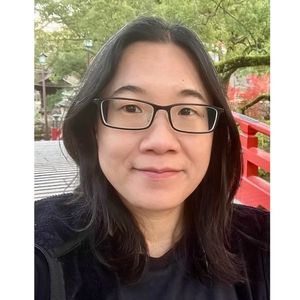
An excerpt from Our Unforming: De-Westernizing Spiritual Formation
For much of my life, my experience of the spiritual life has been full of guilt and shame for not doing enough and not being enough. I feel guilty whenever I fall asleep while praying in bed and each time I glance at my dusty, unopened devotional books. As a woman, and especially as a woman of color, I have been taught that to become a good Christian, I need to serve sacrificially in the church. I have tried, but I often burnt out. When being a Christian is primarily measured by the amount of Scripture reading, prayer, and volunteering one does, I am a perpetual failure.
In the church, we tend to teach that formation occurs like a positive line of progression and growth. Instead, I propose that our formation is a cyclical movement into wholeness.
According to cultural psychologists Kaiping Peng, Julie Spencer-Rodgers, and Zhong Nian, the Western understanding of change tends to be linear. Although change is unpredictable and disruptive, we in the West tend to believe that all change leads to progress. A linear orientation values progress, production, and perfection. If we believe our spiritual lives should continuously move upward, then that creates levels of achievement and a false expectation of perfection.
In Asian and Asian American churches, we are especially drawn to this achievement-oriented spiritual formation we’ve learned from Western churches. Asian pastors formed in Confucian patriarchy easily latch on to the power of assessing faith based on morals and achievements. Under a patriarchal system, male leaders of the church have the power to set the standards for progress in spiritual formation and to judge who is a good Christian and who is not.
This meant that my earliest understanding of formation was filled with endless shame and admonitions that I was not measuring up. I frantically served in the church and in the community in order to make up for my insufficiencies. When spiritual maturity is measured against perfection, I get caught up in a never-ending cycle of performance trying to meet the demands of a false perfection.
An Alternative Approach
A cyclical orientation provides an alternative approach to the spiritual life. The image of a circle is found in many non-western traditions. Cherokee theologian Randy Woodley explains that in many Native American cultures, the circle is used as a symbol of spirituality because it is the symbol of nature. Creation reflects a cyclical, not linear, pattern of life—from the rotation of the earth and moon to the changing of seasons to blood circulating in our bodies. Indigenous communities learn to live in harmony with the cycles of nature. Farmers and gardeners also learn to understand the cyclical pattern of nature. But our modern spiritual practices often look more like a factory line for mass production rather than the natural cyclical patterns of life.
In a cyclical orientation to the spiritual life, there is no finish line. There are no steps or stages. Our spiritualities are simply our relationships with God; there is no point when it ends. Circles remind us that instead of being a destination to reach, the spiritual life is the transformation that is happening within as we experience the sacredness of God, the earth, community, and ourselves.
The circle is also found in East Asian spirituality represented by the yin-yang symbol. Within the circle are the continual cycles of change through which we experience the fullness of life. Korean theologian Chung Hyun Kyung writes, “The formation of a living spirituality is a continuous process of birth, death, and rebirth.” Although a cyclical spirituality is not optimistic, it is realistic as it reflects the movements of joy and grief as we learn to hold these cyclical experiences together.
In a cyclical spirituality, one in which there is no destination, we continuously return to where we began. Howard Thurman describes the spiritual life with the image of a river, which has a cyclical ecosystem. He writes, “The goal and the source of the river are the same!” All water comes from the sea and returns to the sea. In between, there are times of flood and times of drought. He writes that in the same way, “the source of life is God,” and the movement of the spiritual life is a returning to God.
I believe that in a cyclical formation, we are also returning to ourselves. We began not when we were born but when God first imagined us. Our spiritual lives are the cyclical journey of becoming that person God first saw, still sees, and will always see in us. In a cyclical formation, we are never incomplete or insufficient, but along the way, our visions become distorted as we try to conform to the social expectations around us. We may lose sight of who we truly are. Through prayer, we connect to divine sight in order to see ourselves again. Each time we return to God, our center, we are reminded of our sacred selves. On those days, when I can no longer see myself clearly, I enter into the space I share with God, and I ask, “God, when you first imagined me, who did you see?”
Coming into Our Wholeness
A cyclical formation can be frustrating, as we are continuously unforming and re-forming. Sometimes we feel like we’re coming back to the same issues again and again—the same wounds, the same bondage. This is the work of unforming. Sometimes we are coming back to deep generational wounds that have been cycling through our family’s story for centuries. But spirituality was never meant to be easy. In a cyclical orientation to formation, we see God is doing the work of transforming us. Of course that’s hard! We are responsible for being present to the change and the work we need to do.
If our formation journeys are a continuous cycle of unforming and re-forming, then one way we can unform our linear expectations of perfection is by practicing making mistakes. For the past ten years, I’ve been continuously enrolled in some sort of art class. I’ve tried drawing, oil painting, watercolors, photography, whittling, and pottery. I’m not good at any of them. But I’ve come to think of my weekly art class as my weekly practice in failing. It’s good for my soul to practice failing and for my hands to make big sloppy messes. Making mistakes is part of being human, and I am not any less worthy because of my mistakes. Some time ago, I began to realize that it’s actually the imperfections that make a piece of visual art interesting and beautiful.
A cyclical paradigm presents us with a healing approach to our soul formation. Spiritual formation is not about progress but about wholeness. It values completeness over efficiency. It changes the way we relate to and interact with God. Cyclical formation offers no clear direction or measurable markers. The reason we may experience our spiritual formation as ups and downs, back and forth, highs and lows is not that we’re lost or confused in the journey but that these are the natural cycles of the spiritual life. So even though I may experience the spiritual life like a tangled web, I believe what God is working in me is actually an ever-expanding circle. In wholeness, we experience ourselves more fully as our souls expand. As we transform, we create more room in our souls for ourselves, for God, and for others.

Cindy S. Lee is a spiritual director and urban explorer. She has a PhD in practical theology in spiritual formation from Claremont School of Theology and a DMin in transformational leadership from Bakke Graduate University. She lived in Beijing and Taipei for six years and currently resides in Los Angeles. She is an adjunct professor at Fuller Theological Seminary. Cindy is also the Director of Liberated Together Spiritual Direction School and the author of Our Unforming: DeWesternizing Spiritual Formation, 2022 and Contemplative Witnessing: BIPOC Centered Spiritual Direction, 2025.







